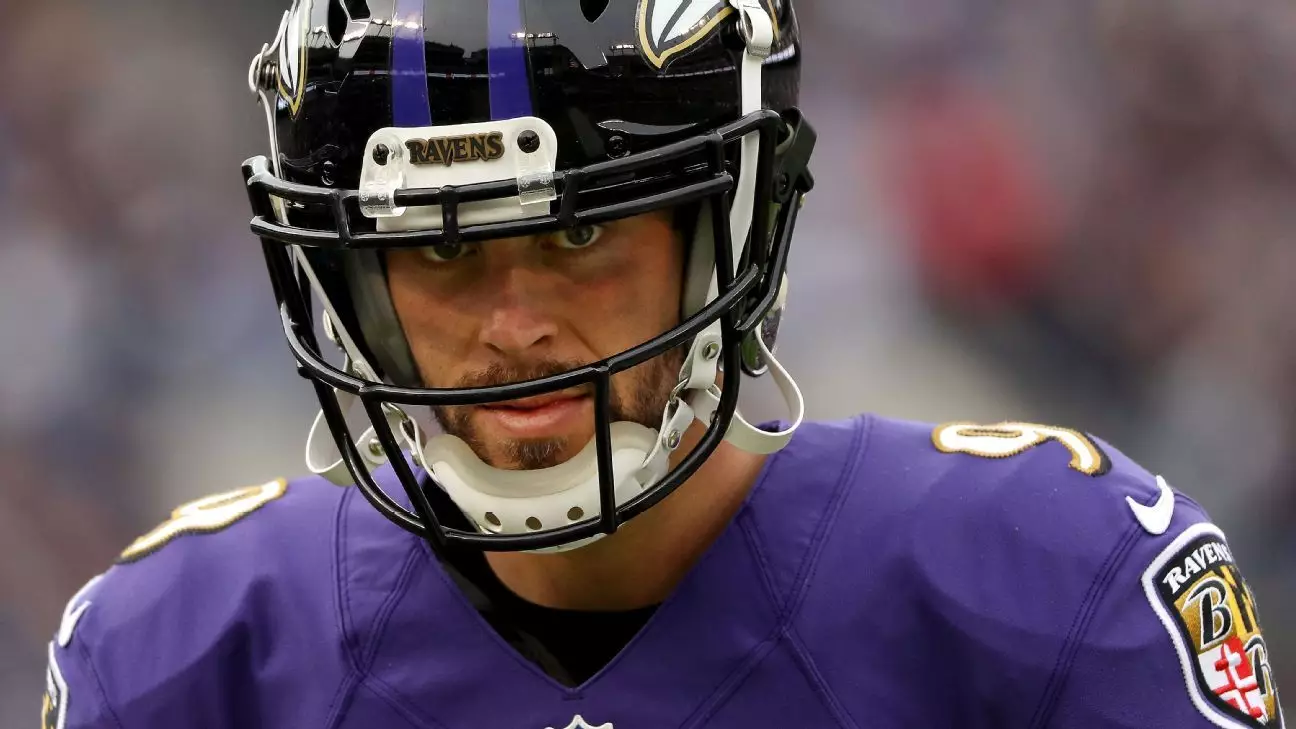The recent accusations against Baltimore Ravens kicker Justin Tucker have reverberated throughout the sports community, raising questions about accountability, due process, and the implications of alleged misconduct in professional sports. A total of 16 women from eight different spas have come forward, asserting that Tucker engaged in sexually inappropriate behavior during massage sessions between 2012 and 2016, coinciding with the early years of his celebrated NFL career. This article will explore the ramifications of these claims for Tucker, the Ravens organization, and the wider context of similar allegations within professional sports.
The allegations against Tucker are serious and troublesome. Reports indicate that some women accuse him of leaving bodily fluids on massage tables and making them feel uncomfortable through intense eye contact during sessions. The incidents are not isolated; their cumulative effect creates a disturbing picture of Tucker’s conduct during a critical time in his football career. These allegations pose profound questions about professional boundaries and consent in environments that should be safe and respectful.
In his defense, Tucker maintains his innocence, describing the charges as “unequivocally false” and characterizing the coverage as sensationalized tabloid-style reporting. He stated that interactions were misrepresented, suggesting a lack of understanding or misinterpretation of context. This defense underscores the complexities surrounding accusations of sexual misconduct in the public eye, where perception can often eclipse objective truth.
Amidst these growing allegations, the Ravens organization has publicly stated its commitment to addressing accusations of misconduct seriously, echoing sentiments from NFL commissioner Roger Goodell, who emphasized the seriousness of the claims. Given Tucker’s status as a long-standing player and an accomplished athlete—he is a seven-time Pro Bowler and holds the record for the most accurate kicker in NFL history—his situation poses a dilemma for the team and the league.
The implications for the Ravens could be severe, both in terms of their public image and locker room dynamics. Previous statements by Ravens coach John Harbaugh regarding a zero-tolerance policy for misconduct illustrate the delicate balance professional sports franchises must maintain when managing allegations against star players.
The timing of the allegations amid a broader cultural reckoning regarding sexual misconduct through movements like #MeToo cannot be overlooked. As more women come forward to share their experiences, the landscape of accountability is evolving rapidly. Assertions surrounding Tucker’s case, particularly those indicating fear of retaliation among therapists, point to systemic issues within professional environments that can deter victims from speaking out.
It raises a pertinent question: how can institutions foster a safe atmosphere for employees to report misconduct without fear of professional consequences? In many cases, the perceived power dynamics can silence victims or instill a sense of hopelessness regarding their ability to achieve justice or accountability. This ongoing conversation will be crucial as the Tucker case evolves.
As the allegations unfold, the potential legal implications for Tucker are significant. His lawyers have stated that he has not been banned from any spas, and they challenge the credibility of the accusations, labeling them as speculative. However, the persistence of multiple claims over several years complicates his legal standing. The violation of the NFL’s personal conduct policy could result in disciplinary actions ranging from fines to suspension.
Moreover, the outcomes of such cases can set precedents within the league, influencing how future allegations are handled. The intersection of professional success and personal ethics becomes increasingly scrutinized in light of social pressures and emerging standards for acceptable behavior in all spheres of society.
The unfolding situation surrounding Justin Tucker acts as a reflective mirror for the NFL and the sports community at large. While allegations against high-profile athletes are not new, the gravity and multitude of accusations against Tucker from several women force a confrontation with uncomfortable truths about power, consent, and accountability.
As the Ravens monitor this evolving situation, and as Tucker navigates through these claims, the implications for all involved—including the reputations of players and organizations—will linger long after the headlines fade. The discourse generated from these events may ultimately contribute to positive changes in how such cases are addressed, influencing policies and fostering safer environments within the sports world for years to come.


Leave a Reply